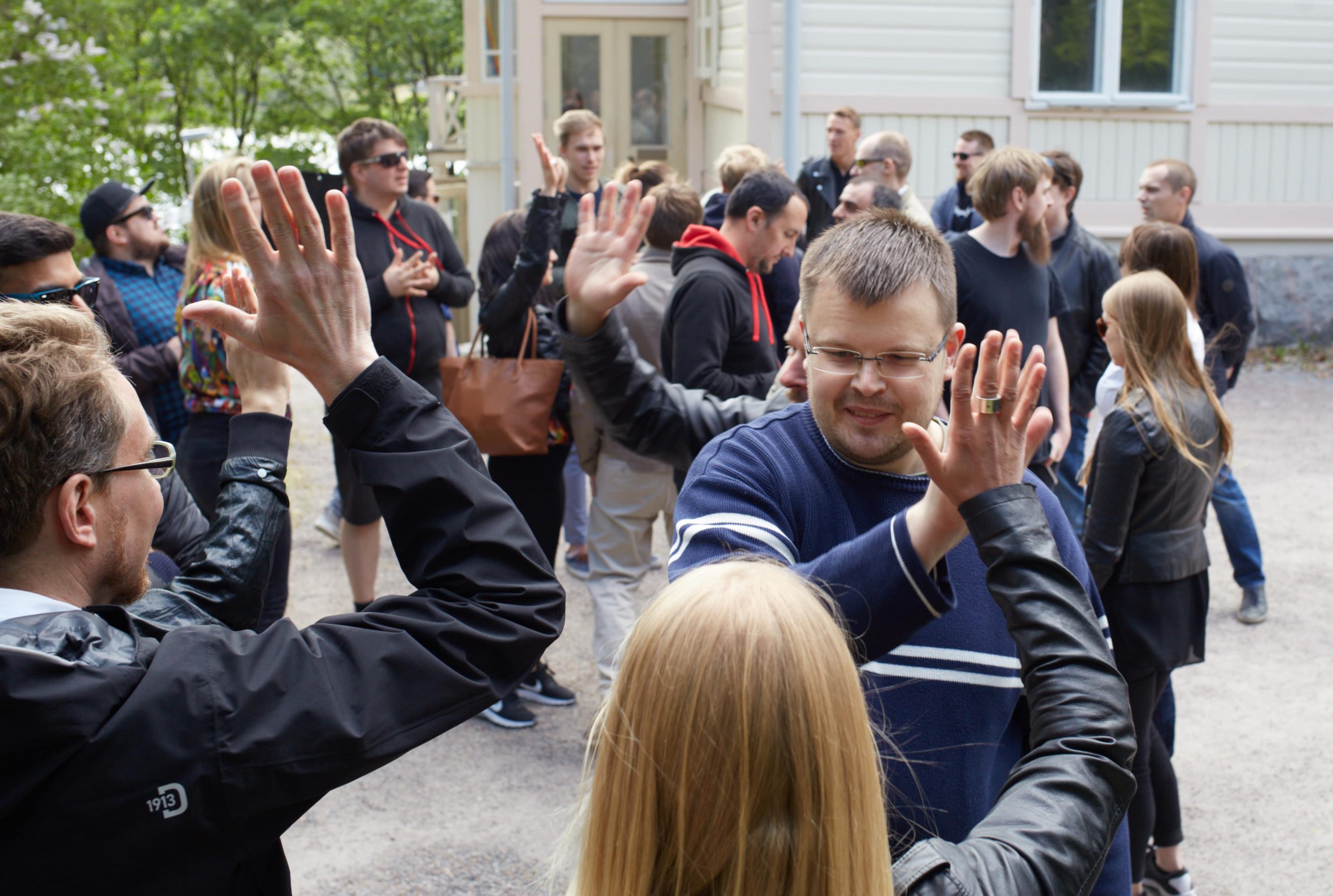Why should you participate in developing others?
Here at Exove we believe in development and we want to be part of developing the next generation of developers. Our trainee program is the manifestation of this ideology, but we use other avenues for this, also. Talking at meetups or conferences and having breakfast seminars are other ways we have taken part in developing developers in the past. We took part as trainers in Helsinki Business College’s intensive training program, where they aim to help with developer shortage that’s affecting Finland.
This blog post will discuss the reasons to participate in developing others and what to keep in mind when planning a training – either a one-off or a longer series.
Why develop others?
The most obvious reason to develop others is that you bring new knowledge to people. The benefits of training and bringing new knowledge are very diverse. It improves results in everyday work as people have more knowledge on a topic. It improves commitment and workplace happiness as people feel they are developing themselves. What it also creates is interest in a new topic. This can have very positive effects on the learner as they might start thinking on new approaches or they might want to learn more on the topic, improving the previously mentioned results.
But not only the people participating in the training benefit from it, the trainer learns, too. It is known that teaching something to others teaches the topic to the trainer also. Having to understand a topic so that you can explain it to others forces the trainer to dive deep into the topic and by doing this, they will learn something new. And let’s not forget the benefits of having the trainings. Each time you have a training, you get more comfortable in public speaking and presenting a topic.
Planning the training
When planning a training, think of the audience first and foremost. What kind of skill level are you expecting and what are they potentially hoping for from the training. If it is your first time having that sort of training, then it is understandable that you might not know the expectations of the participants. It is especially important to gather feedback in these situations so that you can adjust the training in the future.
The content of your training should not be only slides. Lecture-like trainings are proven to be ineffective for many and you should try activate other kinds of learners. Asking questions and engaging discussions are good ways to activate the participants. Others ways to activate include having small tasks or exercises in-between the other material. This promotes different kinds of thinking and helps you to wake up those who are on the verge of falling asleep. Although at Business College the trainings were held in between coding sessions, we tried to keep the training material relevant and more engaging by bringing up examples from recent challenges the participants were having when actually developing something. By doing this, the concept was connected to practice.
Lastly, what kind is the training? Is it one-off or repeatable? Or is it a multi-part or one session? The structure of your training is affected by the nature of your training. While one-off one session might feel like easier to plan, creating a training that will work on the first try is actually harder. With repeatable or multi-part trainings you can gather feedback and hear what the participants are feeling, allowing you to adjust the later sessions based on the feedback.
Executing the training
Before having the training, it is best to practice a bit. Go through the presentation material and think about the flow: when to have pauses, when to ask questions, when have the participants do something on their own. Some of this is something that comes with experience but especially activating the audience is a part of training that is often overlooked.
Once you know you material inside and out, it is easier to act confident when presenting it. By acting confident you create an atmosphere where you seem that you know the subject. Often the confidence of the trainer devalues the training because they don’t seem confident in the subject.
Can’t prepare for everything. Sometimes the training environment does not work for someone and that is okay. As said earlier, training is also about learning. You will learn how to run different kinds of trainings over time and sometimes they go excellently and sometimes not. As long as you are willing to learn, the training will also improve too.
After having trainings and helping new developers for a month, I learned that adjusting for skill levels can be really hard. In this case most of the students were beginners in web development but might have some experience from independent studying, meaning that explaining a concept might either sound like complete gibberish or it could be totally clear already. Luckily, in this case there was time to adjust over the weeks and have trainings that were on the participants’ skill level.



